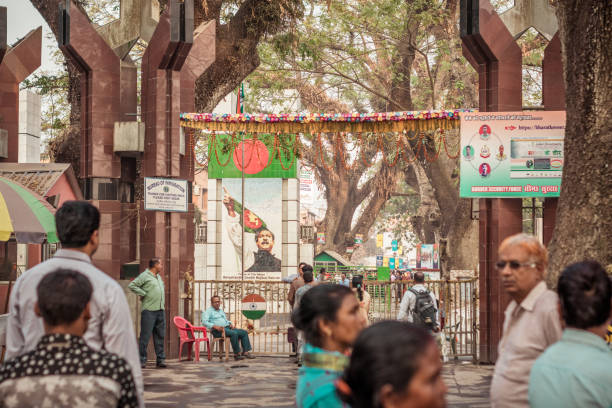
Bangladesh is damaging itself’: Top trade expert says India’s land port curbs are just a teaser
NEW DELHI : India’s recent move to restrict Bangladeshi exports through land ports is a “calibrated” and “disproportionately lower-level” response to Dhaka’s increasing trade curbs on Indian goods, Ajay Srivastava, founder of the Global Trade Research Initiative (GTRI), said on Monday.
In an exclusive interview Siddharth Zarabi, Srivastava warned that Bangladesh is “inflicting damage on themselves” and that “they cannot do anything to India”.
“Bangladesh used to be a great garment exporting country. They were adding other products like leather into their kitty. Somehow, since the last power shake-up, religious elements have taken up and they have taken a hardline approach against India,” Srivastava said. “Without any provocation, Bangladesh has prohibited imports of many things from India. As a response, India took a calibrated approach. We did not prohibit any imports from them. We wanted to give them a teaser. We said they cannot come through land route. And if you want to ship, ship through sea route. Everything can come, nothing is stopped.”
India’s reciprocatory move on banning several imports from Bangladesh will hit the neighbouring country with a $770 million bill amounting to nearly 42% of bilateral imports, as per an analysis by GTRI.
“Last year, we imported $660 million worth of garments from them. Most of it are big brands you hear — H&M, Zara. They make in Bangladesh and then export all over the world. Many of them end up in our malls also. The Indian government has imposed port restrictions, meaning they cannot come through land ports — they have to come through sea route only. The figure is absolutely correct,” Srivastava said when asked whether India’s move will cost Bangladesh $770 million.
India has long maintained unilateral zero-duty market access for Bangladeshi goods, owing to its earlier status as a Least Developed Country (LDC). But Srivastava noted the status needs revisiting. “Bangladesh has graduated from LDC. That needs to be reviewed by India and other countries. Bangladesh is under a lot of pressure because they will be losing all the tariff benefits they were getting from India, Europe, and America. It is a real pain for them. They are inflicting damage on themselves, they cannot do anything to India.”
He dismissed concerns of large-scale illegal re-routing of Chinese goods via Bangladesh but acknowledged limited instances may exist. “Legally, it is not allowed,” he said when asked whether Bangladesh was increasingly becoming a trans-shipment hub for Chinese goods into India. “They (Bangladesh) buy fabric from China, turn it into garments, and export to India. This trans-shipment may be happening at a very small scale.”
Bilateral relations between New Delhi and Dhaka have strained under pro-China Muhammad Yunus. The relationship plummeted further after he, during his China visit, made a controversial statement about India’s Northeastern states. “The eastern part of India, known as the Seven Sisters, is landlocked. They have no access to the ocean. We are the only guardians of the ocean in this region. This opens up huge possibilities,” Yunus said, addressing Chinese officials in Beijing.
Meanwhile, officials in the Indian government said that New Delhi’s trade policy shift aims to ensure fairness in bilateral trade. India had previously allowed Bangladesh to export through all land and sea ports while Bangladesh continued to block Indian exports, especially to the Northeast, a move New Delhi saw as both discriminatory and politically motivated.
Last Saturday, India decided to allow ready-made garments from Bangladesh only through Kolkata and Nhava Sheva seaports, while barring imports of a range of consumer items through land transit posts in the Northeast.
Besides ready-made garments (RMG), plastics, wooden furniture, carbonated drinks, processed food items, fruit-flavoured drinks, cotton, and cotton yarn waste will not be allowed to enter India through land customs stations and check posts in Meghalaya, Assam, Tripura, and Mizoram, and Phulbari & Changrabandha in West Bengal. The new restrictions for Bangladeshi consumer goods were imposed five weeks after New Delhi ended a nearly five-year-old arrangement for transshipment of Bangladeshi export cargo to third countries via Indian airports and ports.
“Restricting imports of ready-made garments from Bangladesh through only two seaports is a reciprocal measure to Bangladesh imposing similar trade restrictions on Indian yarn and rice as well as selectively enhancing inspection on all Indian goods exported to Bangladesh,” a source told.
Source : PTI

